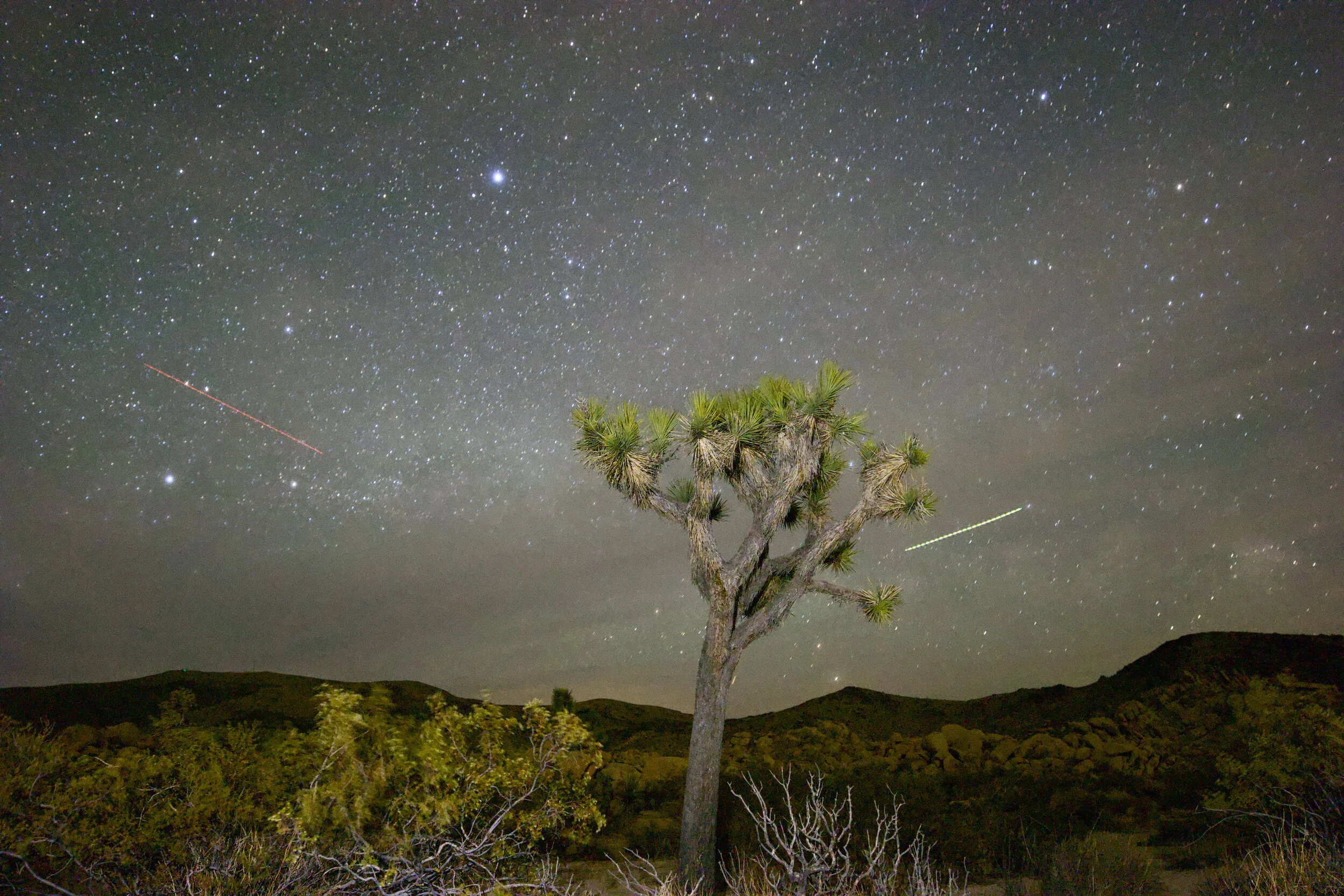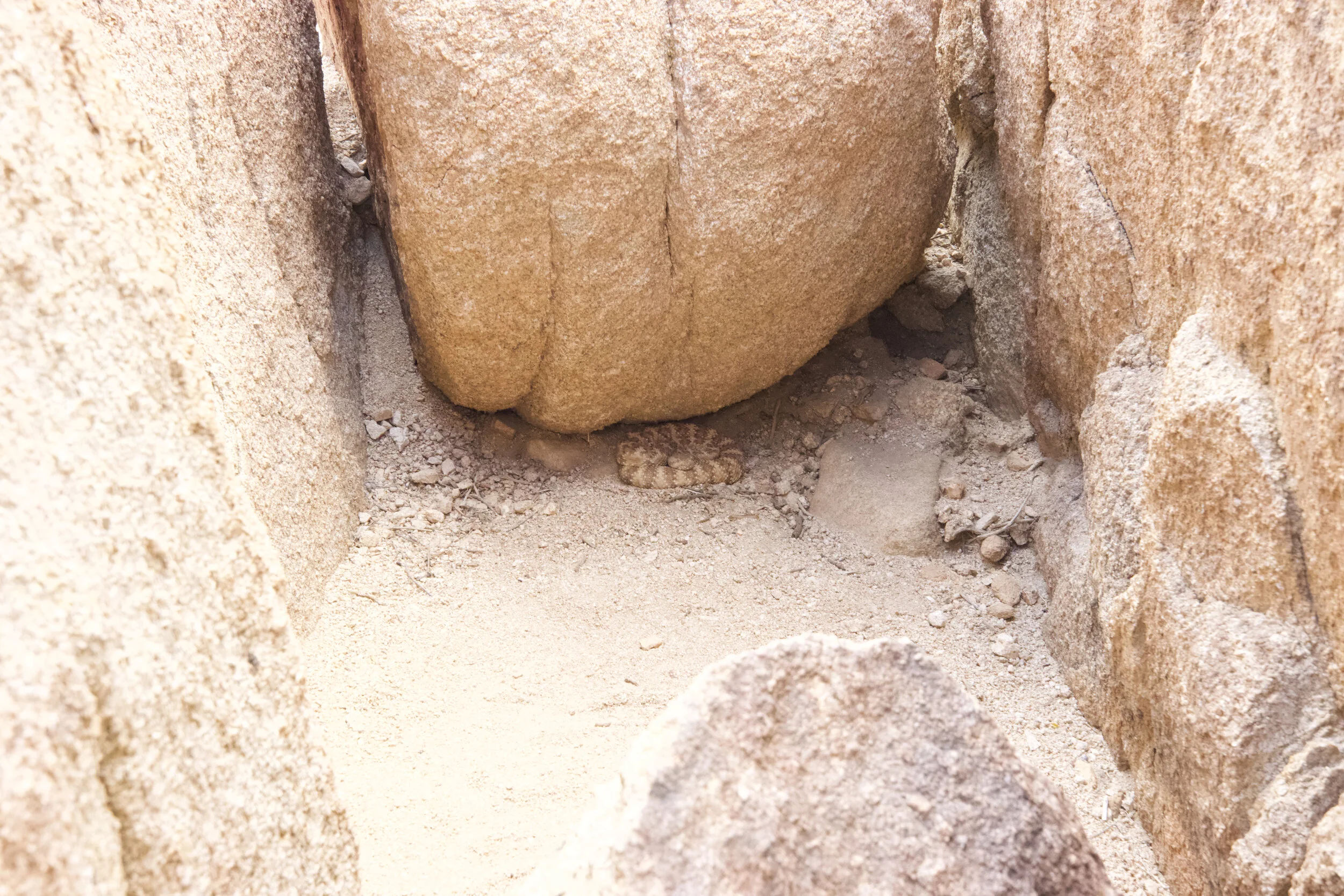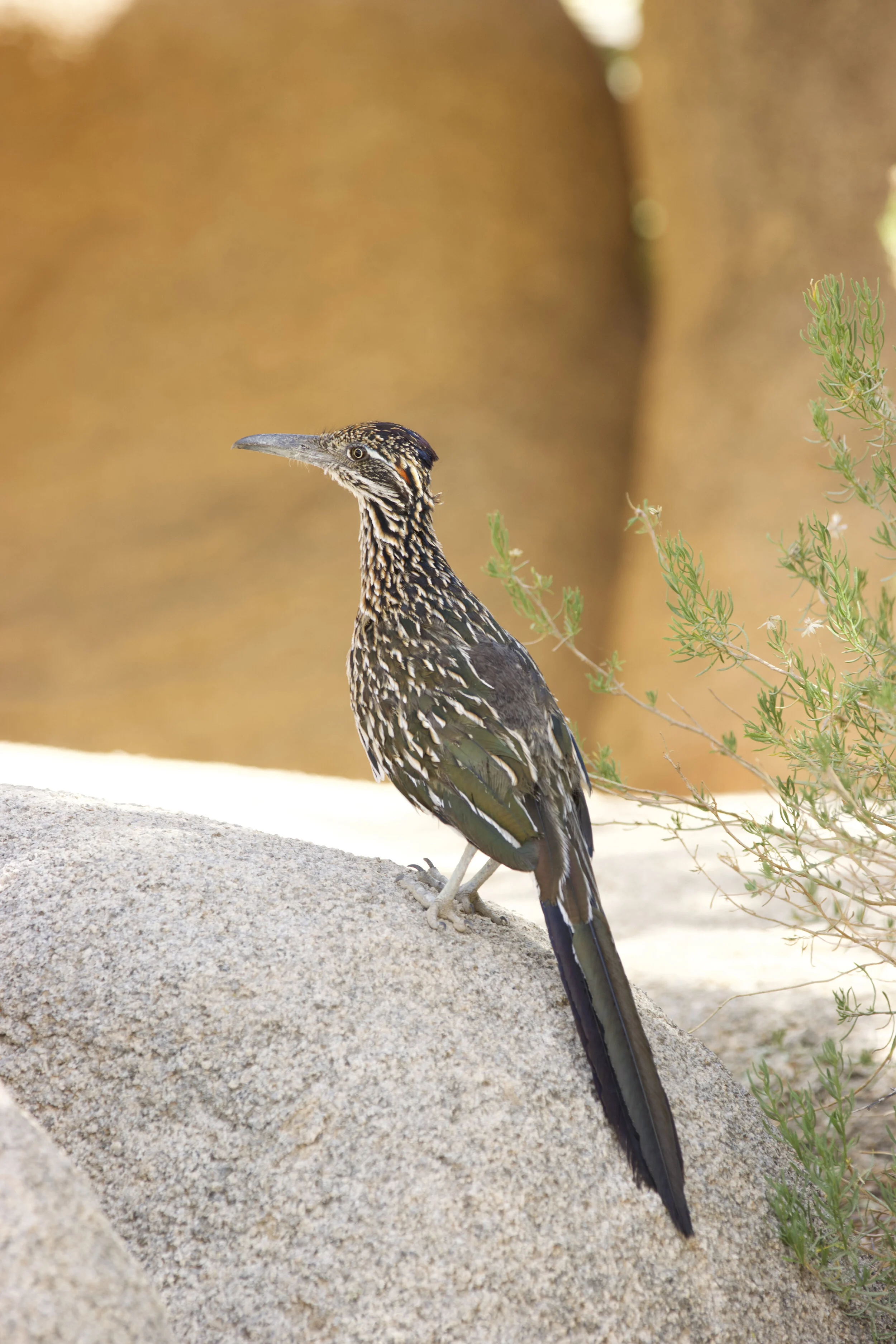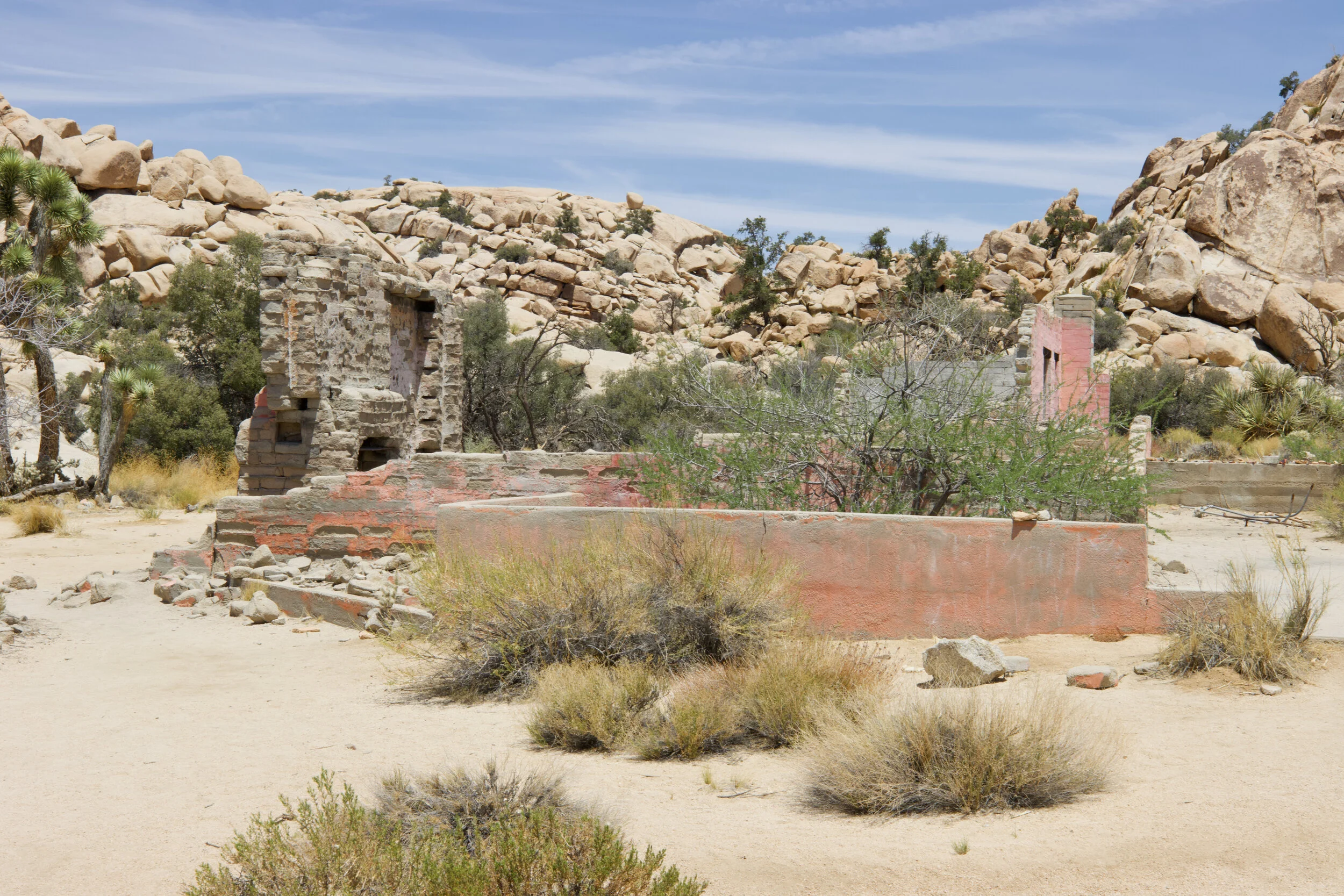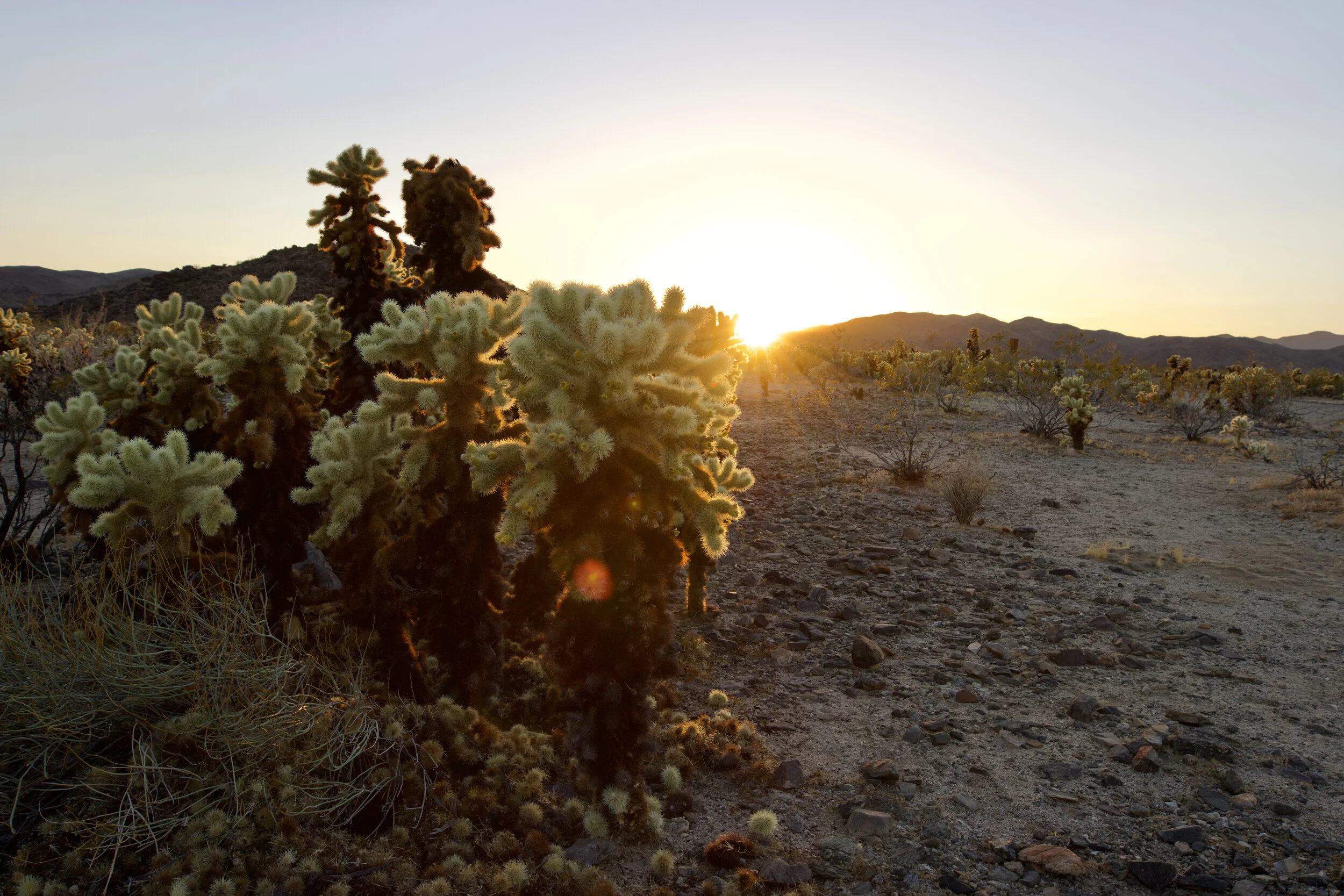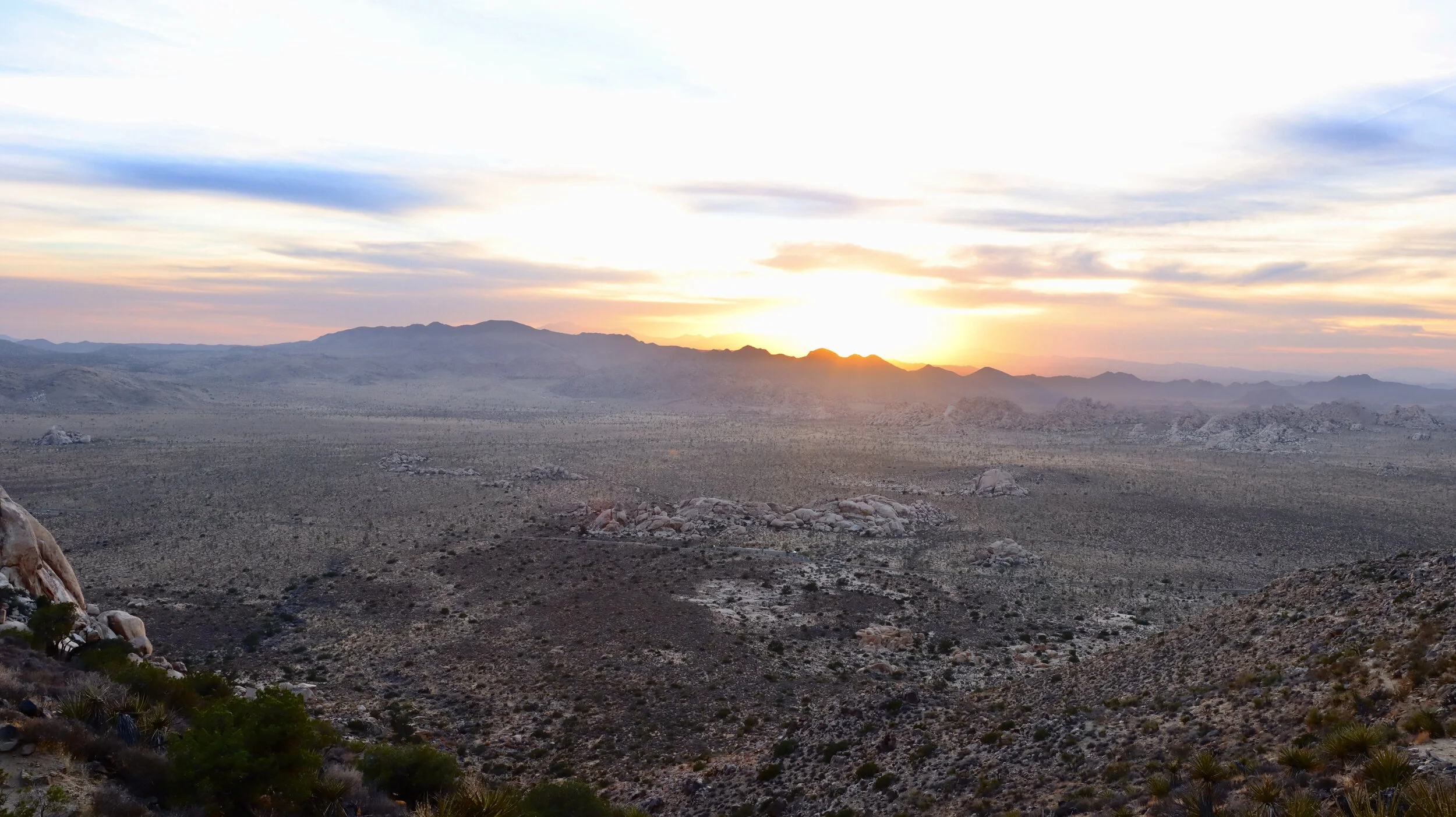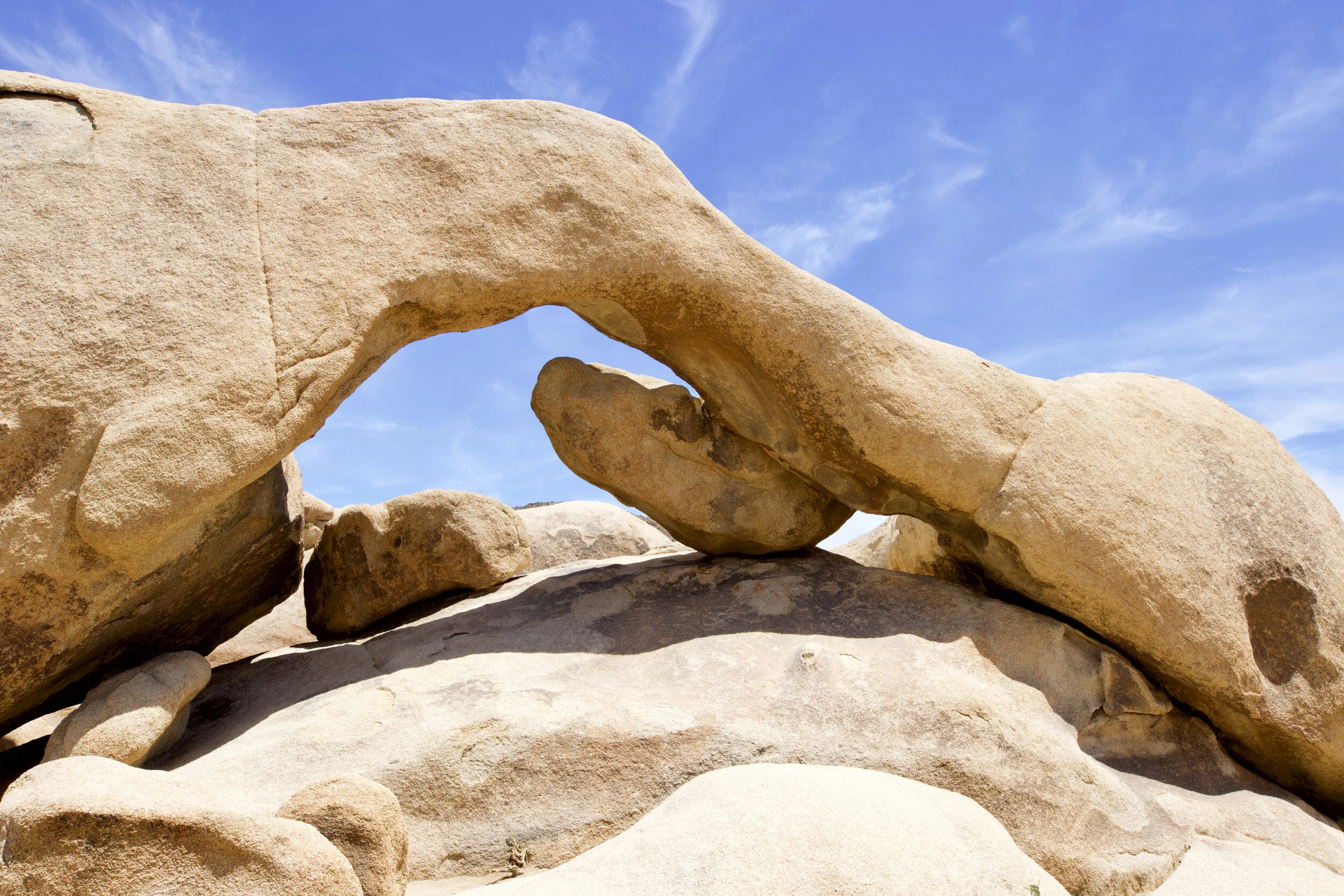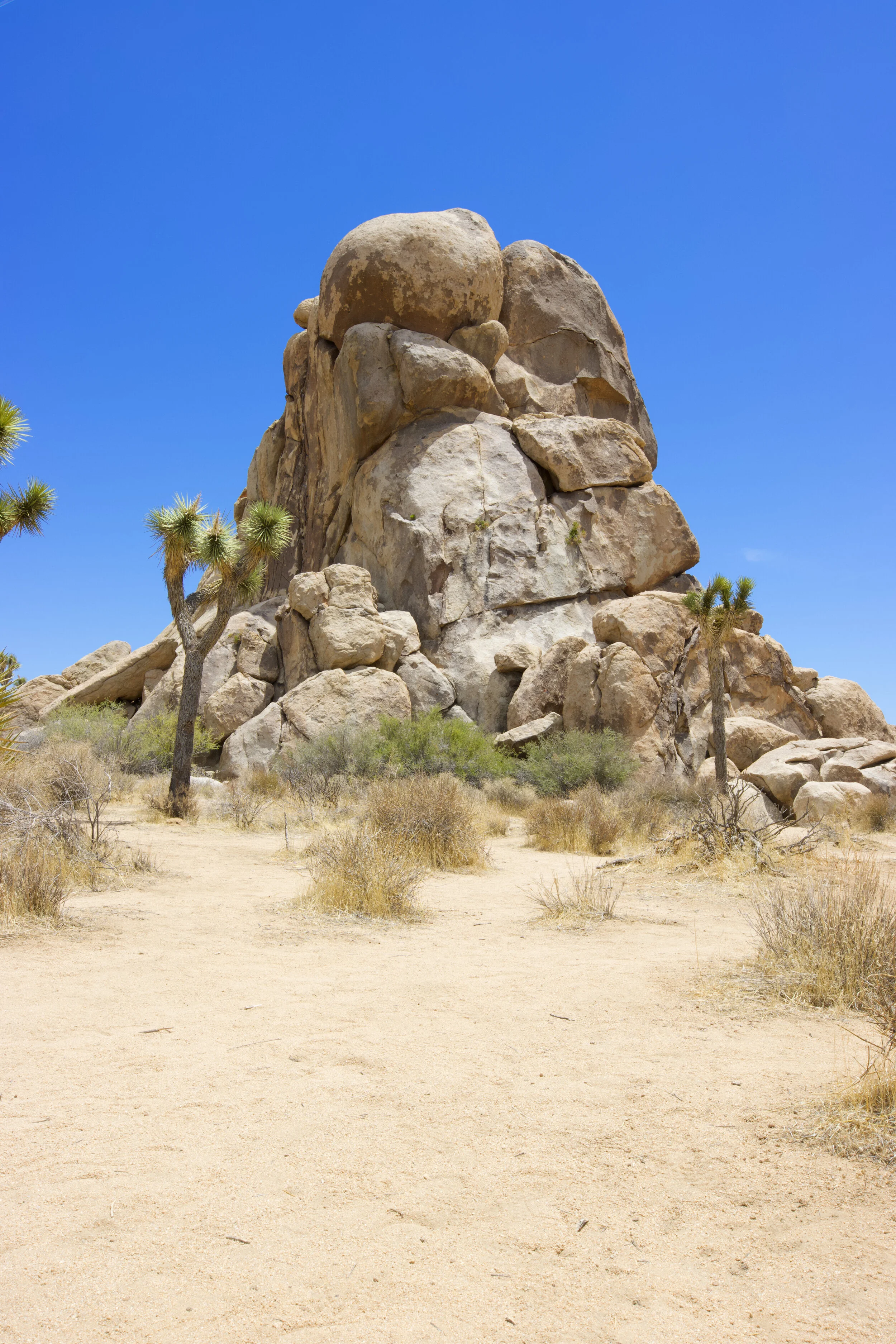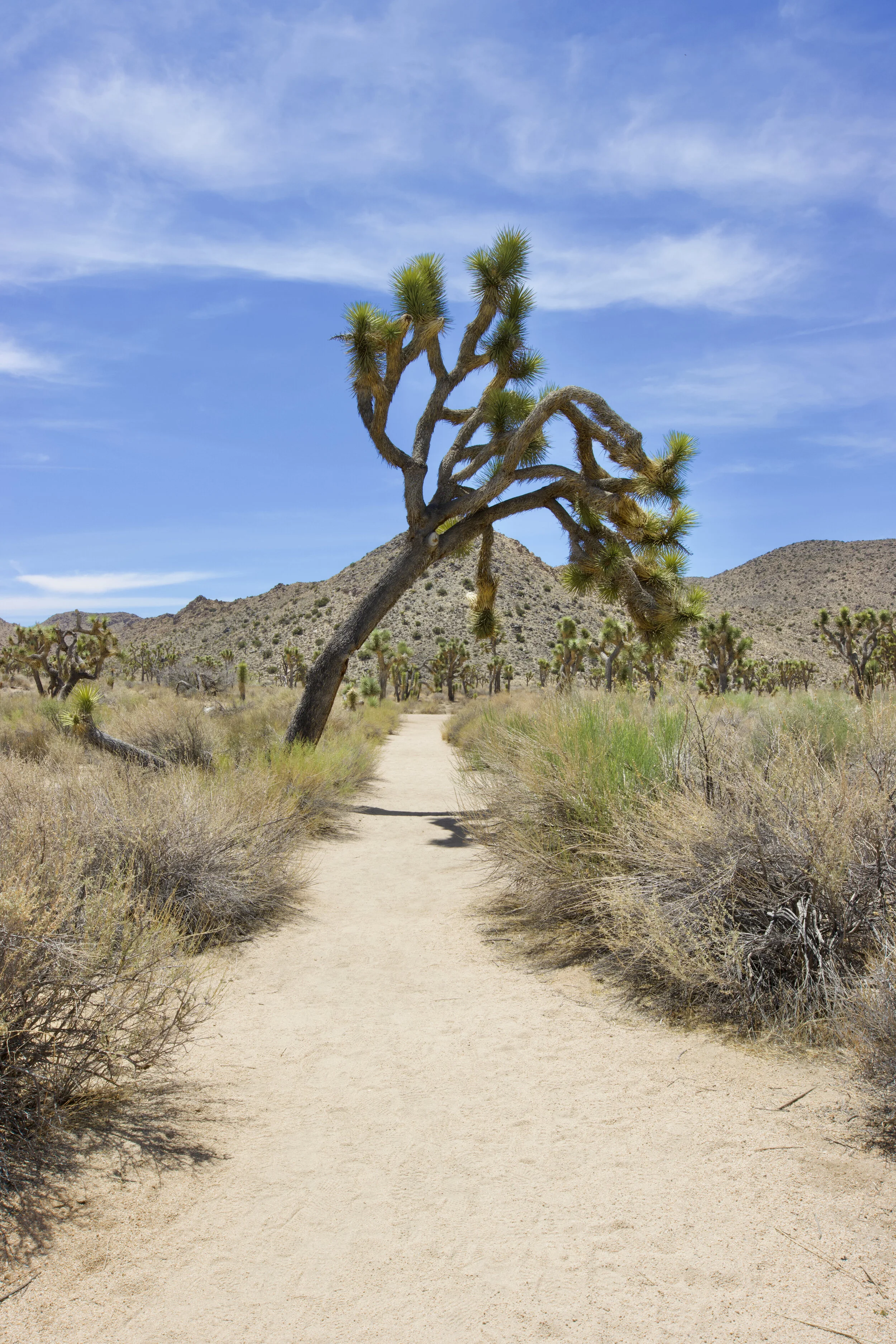Joshua Tree National Park
A Joshua Tree under the night sky.
Joshua Tree National Park is a place of wonder and imagination. 800,000 acres of desert and rock, this marvelous place is home to many dessert animals including Rattlesnakes, Coyotes and Roadrunners. During the summer in the midst of the day you may be lucky enough to come across a few of these animals but if the heat is too much, night driving is a good alternative and you are likely to see coyotes and snakes crossing the road. Hiking through the park, you are able to observe unique and interesting rock structures as you look out into the dessert. Made of mostly quartz and dolomite, these sedimentary rocks come in all shapes and sizes.
A Rattlesnake taking shade under a boulder.
A Roadrunner resting on a rock.
When exploring Joshua Tree National Park, be sure to explore more than just the main sights. There are plenty of rock structures, mines and abandoned building in the park that are not marked by a sign so if you go off on your own into the dessert, you may be lucky enough to find a few interesting sights!
An unmarked abandoned building off the trail.
Bringing it back to the main sights, the Cholla Cactus Gardens are a must see in the park. The best time to visit the gardens is at sunset or sunrise because this is when the lights gleaming over the mountains in the distance cause the cacti to glow and the views are absolutely stunning! These cacti have very shallow roots so you must be careful when walking by them as it is very easy to get pricked. If you do get pricked, use a napkin or other material to pull the cactus barb out because you will get little splinters in your fingers if you try and pull the barb out yourself.
Glowing Cholla cacti at sunset.
You will not want to miss one of the amazing sunsets in Joshua Tree. You will want to climb to one of the higher elevations in the park for the best viewing. The sunsets in Joshua Tree are among the most beautiful I have ever seen. As the sun fades, it lights up the valley floor in an almost red glow and because the valley is so flat, the sunset lasts for around 45 minutes depending on where you are in the park and what time of year you go. The picture below was taken on Ryan Mountain in early June.
Sunset from Ryan Mountain.
Lastly, a few tips for exploring Joshua Tree.
1) Bring lots of water, it can be very hot and very dry.
2) Plan ahead because many of the sights in Joshua Tree are either hard to find, unmarked or have very few trail markers so know where you are going.
3) Go off trail and explore. As mentioned before, not everything in the park is marked so blaze your own trail but don’t go too far unless you are prepared because it can be very easy to get lost.
4) Bring sunglasses, lip balm and lots of sunscreen. It can be very bright and you want to stay protected.
5) Have fun! You are in a National Park!
Arch Rock, one of the parks main attractions.
A cool rock structure that would be fun to climb.
A Joshua Tree hanging over the trail.
